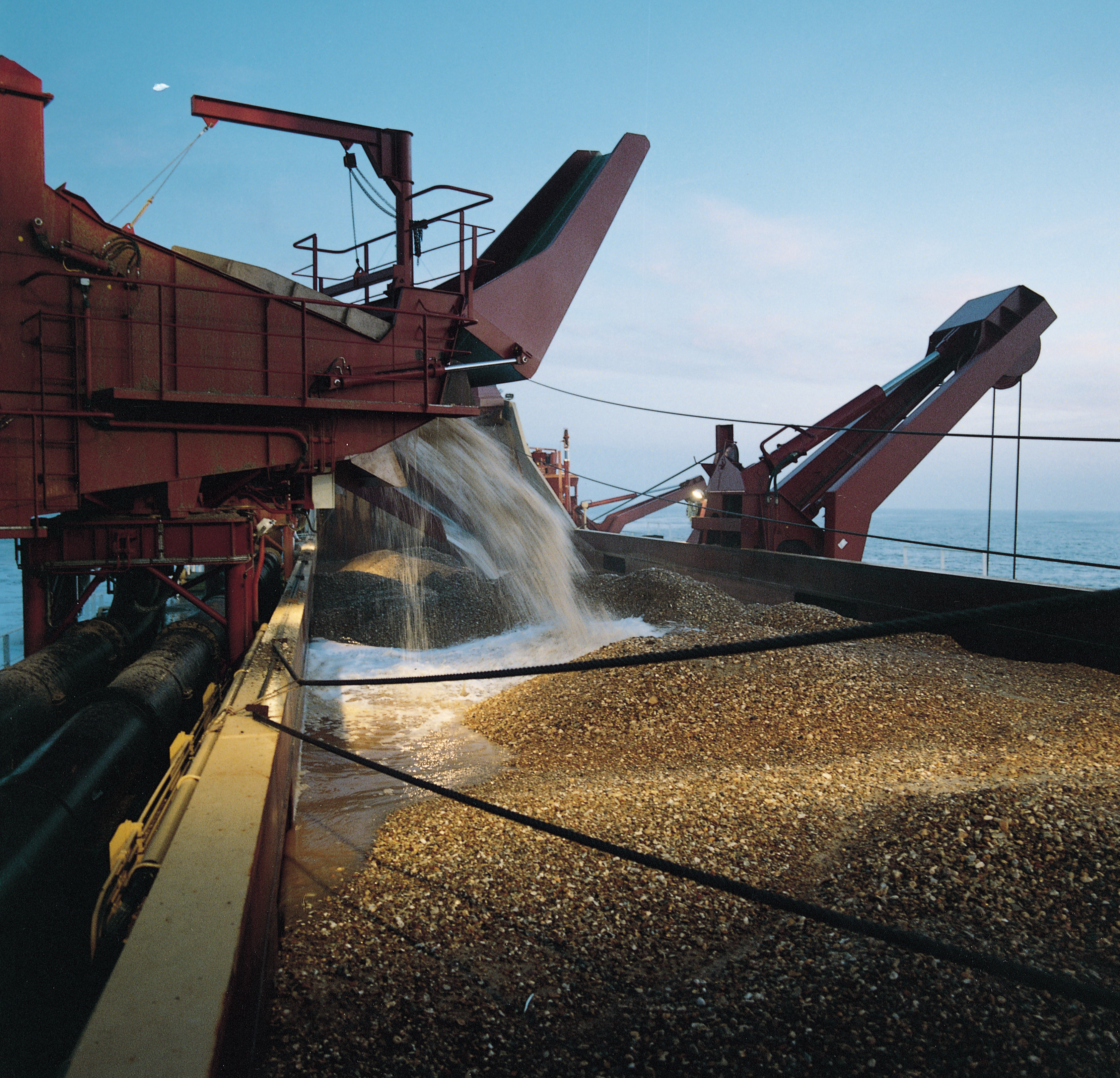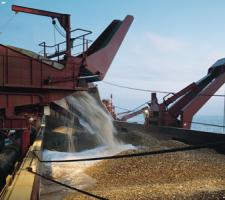
Introduction of the Marine Strategy Framework Directive will help protect the aquatic environment but what does this mean for the marine aggregates sector. Claire Symes spoke to the UEPG's Marine Aggregates Task Force to find out.
Pressures on land use mean that gaining permission to access new aggregate resources in Europe is becoming increasingly difficult. But in many areas, marine aggregates offer an untapped source that could be the key to meeting future demand.
While gaining permission to extract from these locations is not straightforward, introduction of the Marine Strategy Framework Directive could have further complicated matters. However, the
The task force, formed in 2006, undertook a review of best practice that already existed within the sector and worked with the
"Involvement in discussions on development of this Directive is very important for the UEPG," said UEPG Marine Aggregates Task Force chairman Arnaud Colson. "Marine mineral resources offer future extraction sites and need protection to ensure these can be accessed in the future. However, the needs of the aggregates industry need to be balanced with that of nature, the fishery business, leisure activities and other uses such as development of offshore wind farms." Since the UEPG formed the task force last year, it has been working with its member associations to gather information about the sector. "We have been trying to bring together the expertise that exists within the industry and we have used this to lobby the EC. Through this we have tried to demonstrate that extracting marine aggregates does not have to be a destructive process with clear assessment of the impact on biodiversity and clear operational guidelines."
Existing conditions
According to the British Marine Aggregates Producers' Association director Mark Russell, the extraction of marine aggregates can actually benefit the environment. "In many cases, there is limited or no existing information about the marine environment and often it is the survey work carried out by a developer looking for new sand and gravel deposits that helps build up the picture of the actual biodiversity," he said. "Naturally, developers do not want to invest in surveying a potential site only to find that they are prohibited from working in that area, so the Directive will be an important step forward to provide a framework for discussion on if and how minerals can be extracted from the sea bed."
The next stage
The Commission also published the Common Council Position in July ahead of the Directive's Parliamentary Second Reading, which is scheduled for 10 October. By incorporating key parliamentary amendments, the UEPG now believes that the Common Position provides the means to ensure efficient protection of the marine environment. "The changes mean that the Directive can strike the right balance between environmental, social and economic needs," said Colson.
Amendments which have been made to the Common Position include marine protected areas, good environment status and proportionality.
"The Directive now makes clear reference to the Bird and Habitats Directive and we fully support this approach as it ensures that designated areas are sufficiently protected without being transformed into 'no-go areas'," explained Colson.
"The introduction of descriptors focussing on environmental quality elements is also a good step forward. We also support the stipulation that Member States will not have to take any specific steps where there is no significant risk to the marine environment." There is no firm date for the Marine Strategy Framework Directive to become law but Russell firmly believes that the Directive will provide a good framework for Member States that share sea boundaries to work together on development of policies to protect the marine environment. "Current proposals suggest that socio-economic factors will be considered in context with maintaining the biodiversity," he said.















